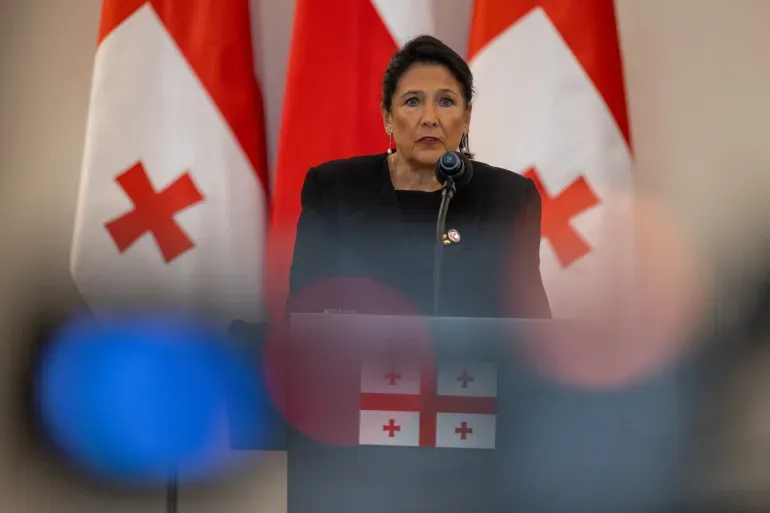Georgia’s president refuses to sign anti-LGBTQ bill
Prime Minister Irakli Kobakhidze accuses Salome Zourabichvili of choosing ‘pseudo-liberal propaganda’ instead of ‘family values’.

Georgia’s president has faced criticism from the country’s prime minister after refusing to approve a controversial "anti-LGBTQ bill."
On Wednesday, President Salome Zourabichvili declined to sign the legislation, which was passed by parliament last month. The bill seeks to ban gender transitions, prohibit adoption by gay and transgender individuals, and invalidate same-sex marriages performed abroad.
Zourabichvili's refusal comes just weeks before the crucial parliamentary elections on October 26. The bill, promoted by the ruling Georgian Dream party, has been widely debated.
Presidency spokeswoman Marika Bochoidze confirmed to AFP that Zourabichvili did not sign the bill but returned it to parliament without issuing a veto.
Prime Minister Irakli Kobakhidze responded with sharp criticism, accusing Zourabichvili of betraying traditional values and supporting what he called "pseudo-liberal propaganda."
"The fact that Salome Zourabichvili did not stand on the side of protecting traditional and family values, not on the side of protecting the interests of minors, but on the side of pseudo-liberal propaganda, once again shows what political choice this person made and what forces [she] is governed by," Kobakhidze said, according to Georgian media.
Despite Zourabichvili's stance, the bill is likely to become law, as the parliament speaker has the authority to sign it within five days if the president does not.
Critics argue the bill resembles Russian legislation that curtails LGBTQ rights, particularly its focus on restricting the "propaganda of same-sex relationships and incest" in educational institutions and media broadcasts. Rights groups have condemned its language, which equates same-sex relations with incest.
Amnesty International has labeled the bill "homophobic and transphobic," while the European Union has warned that it could undermine Georgians' fundamental rights and lead to increased stigmatization and discrimination.
Shalva Papuashvili, the parliament speaker and a member of Georgian Dream, defended the bill, stating it is intended to "strengthen mechanisms for the protection of minors and family values based on the union of a woman and a man."





